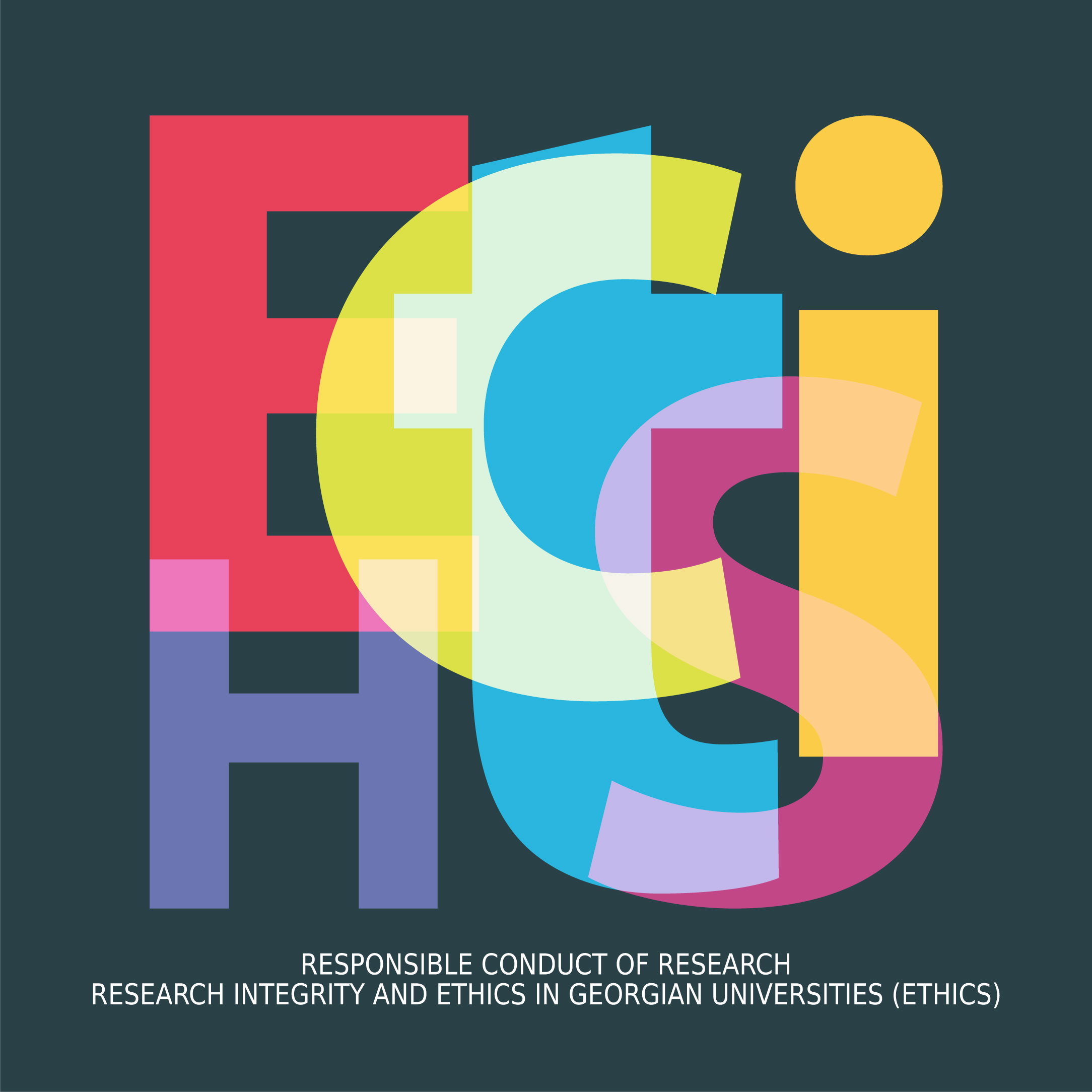
 The aim of the national structural reform project ‘Responsible Conduct of Research – Research Integrity and Ethics in Georgian Universities (ETHICS)’ is to launch a systemic improvement intervention to improve the quality of University and Research-Performing Organizations (RPOs) research through launching measures to adhere to the foundations of high-quality research and excellence.
The aim of the national structural reform project ‘Responsible Conduct of Research – Research Integrity and Ethics in Georgian Universities (ETHICS)’ is to launch a systemic improvement intervention to improve the quality of University and Research-Performing Organizations (RPOs) research through launching measures to adhere to the foundations of high-quality research and excellence.
The ETHICS Project Objectives:
- Policy and Standard Change in Accreditation of Doctoral Programs/Capacity Building of Accreditation Experts/Development of a MOOC;
- Research Integrity Module: to design and elaborate a training module and MOOC on RESEARCH INTEGRITY & ETHICS intended for all individuals for academic career;
- Training of Researchers and Research Support [INTEGRITY] Officers;
- University Research Integrity Policies, Ethics, and Resources;
- Research Integrity, Ethics & Governance Committee/Board;
- Academic Support and Research Integrity Services for Supportive Environment for Researchers/Doctoral Students;
- Responsible Science Communication Strategy.
Project Coordinator: Ilia State University
Project EU Partners:
Free University Amsterdam/ STICHTING VU
European Network for Academic Integrity
Project Georgian HEIs:
Ivane Javakhishvili Tbilisi State University
David Tvildiani Medical University Llc
Batumi Shota Rustaveli State University
Akaki Tsereteli State University
Samtskhe-Javakheti State University
Iakob Gogebashvili Telavi State University
Georgian Institute of Public Affair Foundation
L.E.P.L Apollon Kutateladze Tbilisi State Academy of Art
Project Non - University Partners:
Ministry of Education And Science of Georgia
National Center For Educational Quality Enhancement
Shota Rustaveli National Science Foundation
What is research integrity and why is it important
 |
 |

 FACULTY OF EXACT AND NATURAL SCIENCES
FACULTY OF EXACT AND NATURAL SCIENCES
 FACULTY OF HUMANITIES
FACULTY OF HUMANITIES
 FACULTY OF SOCIAL AND POLITICAL SCIENCES
FACULTY OF SOCIAL AND POLITICAL SCIENCES
 FACULTY OF PSYCHOLOGY AND EDUCATIONAL SCIENCES
FACULTY OF PSYCHOLOGY AND EDUCATIONAL SCIENCES
 FACULTY OF ECONOMICS AND BUSINESS
FACULTY OF ECONOMICS AND BUSINESS
 FACULTY OF MEDICINE
FACULTY OF MEDICINE
 FACULTY OF LAW
FACULTY OF LAW



